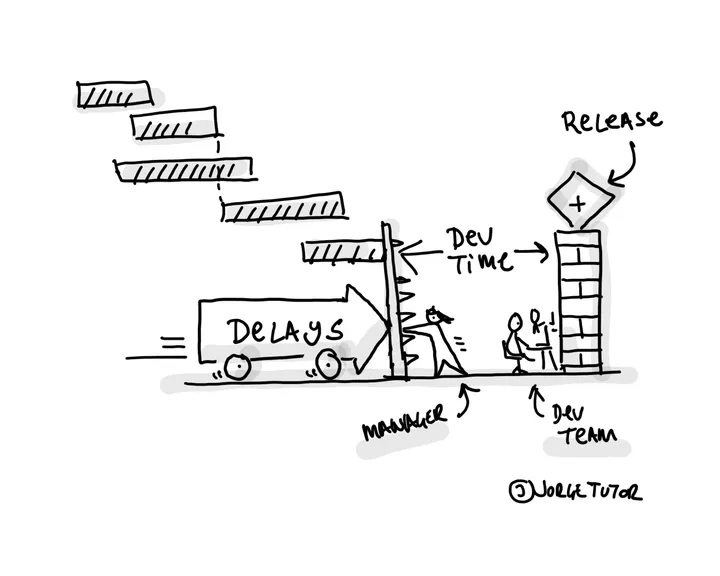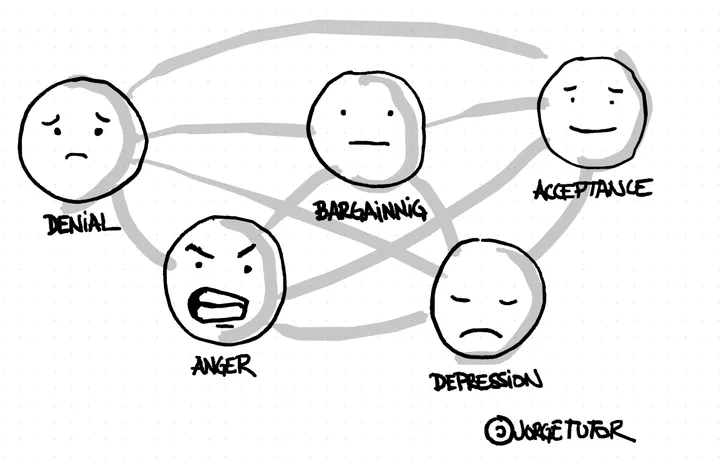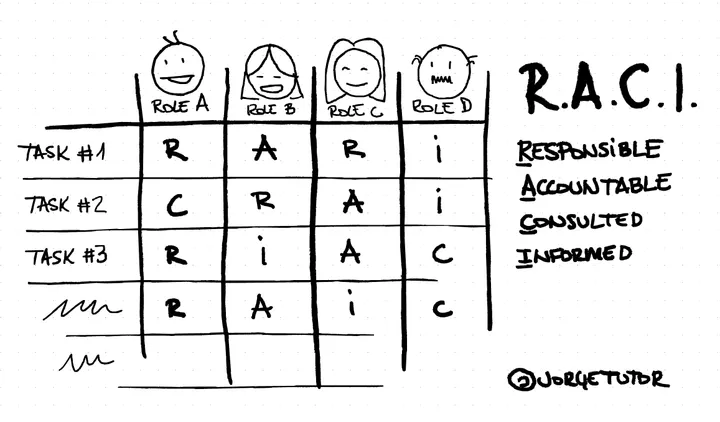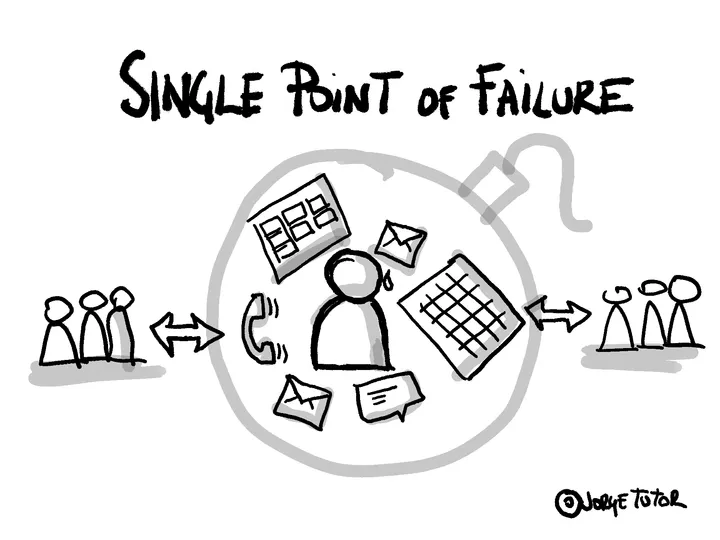-

Why Good Projects Fail Months After Experienced People Are Cut
Why the most expensive decision you can make is cutting costs on your best people.
-

Beyond the Gantt Chart: A Call for Respect in Project Planning
Are you treating your developers like magicians? See how dev time is miscalculated in Gantt charts and why this flawed approach leads projects to failure.
-

I wish more meetings were like those of the rebels in Star Wars
May the 4th be with you!
-

Reclaim your attention: why digital minimalism isn’t just a trend—it’s your survival strategy
You don’t need a productivity hack. You need a _philosophy_. One that says: my attention matters. Digital minimalism gives you that.
-

The Illusion of Stability: Why Stagnation Is the Calm Before the Storm
Discover why perceived stability in teams and projects can be dangerous. Learn how to spot stagnation early and lead continuous progress before it's too late.
-

Multiplying Impact as a Manager
Management isn’t about tracking time or assigning tasks—it’s about multiplying impact. How to avoid the ego trap, escape the drama triangle, and lead effectively. Lessons from *The Making of a Manager*
-

Acceptance Criteria: a tool for clarity or an excuse for failure
It wasn’t in the AC!, A classic excuse—but was it unclear, or just convenient? Good AC define the *what*, not the *how*. But clarity is subjective. Teams must refine, challenge, and think beyond checkboxes. AC are a *guideline*, not a safety net. How do you handle AC conflicts?
-

Deadlines Won't Wait: How Timeboxing Keeps You in Control
Deadlines are real, and timeboxing isn’t just a technique—it’s a necessity. Learn how to use timeboxing to stay in control, avoid last-minute panic, and deliver high-quality work on time.
-

Navigating Change: How to Lead Teams Through the Kübler-Ross Change Curve
Understanding the Kübler-Ross Change Curve in organizational change management can help leaders support their teams through transitions and ease emotional resistance
-

Stop Micromanagement Before It Starts
Micromanagement isn’t just a leadership issue—it’s a trust issue. Here’s how to stop it before it starts
-

Clarify Roles Prevent Chaos the Power of a RACI Chart
Improve project clarity with a RACI chart! Learn how to assign roles effectively, prevent miscommunication, and balance workloads. Get a free RACI template to streamline your projects today!
-

Using Spikes to Minimize Uncertainty
When a high-level estimate isn’t enough, should we jump in or analyze it first? Spikes allow controlled effort to refine estimates—without analysis paralysis. The key? Balance discovery with execution. How do you handle estimation trade-offs? #Agile #ProjectManagement #Estimation
-

Project Managers Shouldn't Be Single Points of Failure
Project Managers shouldn’t be single points of failure. If your team can’t function without you, you’re a bottleneck, not a leader. Enable, don’t centralize. Build direct collaboration & shared ownership. Can your team run smoothly without you?
-

Nonviolent Communication: Transforming Conflicts Building Stronger Relationships
Explore the transformative power of Nonviolent Communication (NVC) to resolve conflicts and build stronger relationships. Learn how empathetic communication can turn heated arguments into opportunities for connection and understanding, fostering mutual respect and empathy in both personal and professional settings.
-

The Hidden Costs of Micromanagement: Impact on Managers, Teams and Projects
Have you ever felt like you're constantly being watched at work? Does your manager oversee every little detail, leaving no room for your creativity? If so, you might be experiencing micromanagement. This management style, often rooted in a desire for control and perfection, can have severe long-term effects on both managers and their teams. How does micromanagement impact productivity and morale? More importantly, what steps can we take to mitigate its negative effects?
-

The Misunderstood Pareto Principle: Why 80/20 Doesn't Always Apply
The Pareto Principle, or 80/20 rule, is often misapplied and misunderstood. While it can be a powerful tool for prioritizing efforts, its over-simplification can lead to neglect of critical tasks. This blog post explores the origins of the Pareto Principle, its common misapplications, and the importance of maintaining a balanced approach. It addresses critiques about the principle encouraging laziness, the potential neglect of important details, and the risk of burnout. The post also discusses integrating the principle with agile methodologies and highlights the need for common sense and thorough study before applying it indiscriminately.
-

How to Deal With a Worker Who Seems to be Underperforming
This article explores the common challenge of worker performance from a management perspective. It emphasizes the importance of measuring value over productivity, the significance of creating a supportive and conducive work environment, and the impact of interpersonal relationships on an individual's performance.
-
Strategies for Overcoming Common Software Development Challenges - A management perspective
In today's fast-paced technology environment, software development teams face numerous challenges that can hinder their ability to deliver high-quality products on time. These challenges often stem from a lack of effective communication and collaboration between development teams and their management counterparts. In this session, we will explore the most common challenges that development teams face from a management and delivery perspective, as well as practical strategies for overcoming them.
-

Strategies for overcoming Scope Creep in Software Development as a Project Manager
Scope creep, often described as a silent intruder in project management, poses a significant challenge for software development projects. This article delves into the consequences of scope creep, highlighting the financial, temporal, and quality-related issues it can introduce.
-

Strategies for Overcoming Poorly Defined Requirements in Software Development as a Manager
Poorly defined requirements are one of the major causes of software project failure. Unclear or unknown requirements can lead to scope creep, misunderstandings between stakeholders and the development team, difficulty in testing and maintaining the product, customer dissatisfaction, and project failure. This article explores strategies for overcoming poorly defined requirements from a manager's perspective.
-

Strategies for overcoming Unrealistic Deadlines in Software Development as a Project Manager
Unrealistic deadlines are a common problem in software development. They can harm the quality of the work, the morale of the team, and overall, the project's success. This article discusses the dangers of unrealistic deadlines, how to identify them, and specific actions to attenuate them.
-
Managing Complexity: Best Practices for Software Development Project Managers
-
Self-Management in Remote Environments
-
Holacrazy (personal notes) — Brian J. Robertson
-
How to Change the World (personal notes) - Jurgen Appelo
-
Manage your life better (personal notes) — Alberto Pena
-
Purple COW: transform your business by being remarkable (personal notes) — Seth Godin
-

Diving Into Peopleware
-
BDD: Behaviour Driven Development